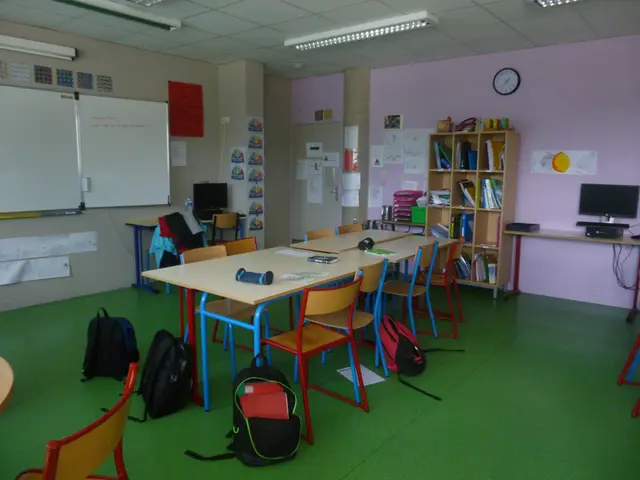Companies' fleet fuel consumption to be cut down, backed by Green, effective from 2030
In a significant move towards climate protection, nine EU countries, including Germany, have plans to expand fast charging infrastructure for emissions-free trucks along two key TEN-T corridors. This joint initiative, supported by the EU Commission, aims to treat this expansion as a strategic priority, accelerate approval processes, and reduce administrative barriers.
The demand for comprehensive charging infrastructure comes from Julia Verlinden, deputy faction leader of the Greens in the German parliament. In statements to the Funke media group's newspapers, Verlinden called for further climate protection measures and improvements in charging infrastructure.
According to "Bild am Sonntag", 60% of new car sales could be affected by a potential ban on internal combustion engines. In 2020, a total of 10.6 million vehicles were sold in the EU. However, Verlinden believes that the share of fossil combustion engines must decrease continuously beforehand to achieve European climate goals.
The EU Commission is planning to extend the ban on internal combustion engines to car rental companies and corporate fleets, starting from 2030. This could significantly impact a large part of the new car business. The remaining new car sales would be for private customers.
Verlinden also called on EU member states to create the necessary framework conditions for comprehensive charging infrastructure. She emphasizes the need for fleet limits and a combustion engine ban by 2035 as essential for climate protection and planning security for manufacturers and consumers.
In addition to these initiatives, Verlinden supports the EU Commission's plan to ban internal combustion engines for car rental companies and corporate fleets from 2030. She believes that this step is crucial in achieving the EU's climate goals and reducing emissions from the transportation sector.
The EU and German government should develop proposals for additional effective climate protection measures, according to both Verlinden's statements and the EU Commission's plan. This includes the expansion of charging infrastructure for electric vehicles, the promotion of renewable energy sources, and the implementation of fleet limits to reduce the number of fossil fuel-powered vehicles on the road.
As the world continues to grapple with climate change, initiatives like these demonstrate a commitment to a more sustainable future. The expansion of charging infrastructure for electric trucks and cars is a crucial step in reducing emissions and transitioning to a low-carbon economy. With the support of key EU countries and the EU Commission, this transition may be accelerated, bringing us one step closer to achieving our climate goals.
Read also:
- Amidst India's escalating climate crisis, transgender individuals continue to persevere
- Germany's three-month tenure under Merz's administration feels significantly extended
- Governing body allegedly persists in enjoying vacation time amidst Spain's highest danger level due to fires, claims Feijóo
- United Nations Human Rights Evaluation, Session 45: United Kingdom's Statement Regarding Mauritius' Human Rights Record








